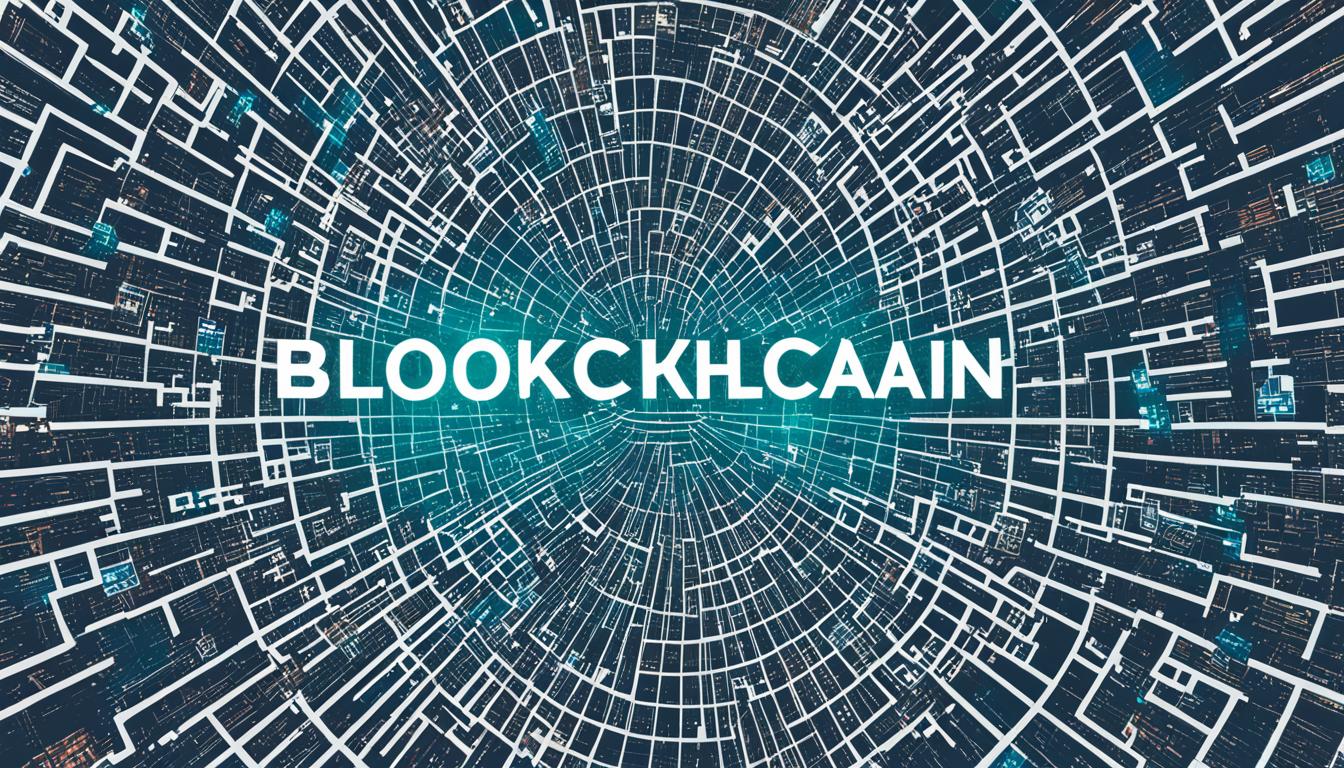Did you know that there are two main types of blockchains? Public blockchains and private blockchains are revolutionizing the way we think about decentralized systems. Public blockchains, like Bitcoin and Ethereum, offer an open and transparent environment where anyone can participate. On the other hand, private blockchains cater to specific entities, like banks and insurance companies, that require more control and privacy.
Key Takeaways:
- Public blockchains are decentralized and open to anyone, while private blockchains are more centralized and have restricted access.
- Public blockchains prioritize security and transparency, while private blockchains focus on efficiency and control.
- Public blockchains offer accessibility and innovation, while private blockchains are suitable for enterprise applications.
- Public blockchains are more secure due to decentralization, while private blockchains may be more vulnerable to hacks and data breaches.
- Understanding the differences between public and private blockchains is essential for making informed decisions in the blockchain space.
Advantages of Public Blockchains
Public blockchains offer several advantages that make them a preferred choice for various applications. These advantages include:
Accessibility:
Public blockchains are accessible to anyone with an internet connection. This openness promotes inclusivity and allows individuals from all walks of life to participate in the blockchain network. By breaking down barriers to entry, public blockchains democratize access to financial services, digital assets, and decentralized applications.
Innovation:
Public blockchains provide a fertile ground for innovation. They offer a platform for developers to create new applications and services that leverage the decentralized nature of the network. With the ability to build on existing blockchain protocols, developers can explore new possibilities and revolutionize industries ranging from finance and healthcare to supply chain management and social networking.
Security:
Public blockchains are highly secure due to their advanced cryptographic algorithms and decentralized architecture. The use of cryptographic encryption ensures the integrity and privacy of transactions and data stored on the blockchain. Additionally, the decentralized nature of public blockchains adds an extra layer of security, as no single entity has control over the network or the ability to manipulate transactions.
Transparency:
Transparency is a fundamental characteristic of public blockchains. All transactions on the blockchain are visible to anyone on the network, creating a transparent and auditable ledger. This transparency enhances trust and accountability among participants, as anyone can verify the validity of transactions and the integrity of the blockchain. It also enables individuals and organizations to track the flow of funds and ensure compliance with regulations.
Public blockchains offer accessibility, innovation, security, and transparency, making them a powerful tool for revolutionizing industries and empowering individuals.
“Public blockchains offer accessibility, innovation, security, and transparency, making them a powerful tool for revolutionizing industries and empowering individuals.”
| Advantages of Public Blockchains |
|---|
| Accessibility |
| Innovation |
| Security |
| Transparency |
Misconceptions About Public Blockchains
Although public blockchains offer various benefits and applications, there are often misconceptions surrounding their data security and privacy. One common concern is the visibility of sensitive data on public blockchains. However, it’s important to note that there are measures in place to protect sensitive information.
Data security on public blockchains can be ensured through encryption techniques. Sensitive data can be encrypted before being stored on the blockchain, making it inaccessible to unauthorized parties. Additionally, storing sensitive data off-chain can further enhance its security and privacy.
Digital identity management is another critical aspect associated with public blockchains. Verifiable Credentials and decentralized identifiers (DIDs) enable individuals to have control over their identity data while still being able to validate their identity and claims. By leveraging Verifiable Credentials, individuals can prove their identity in a secure and tamper-evident manner.
Dock, a leading blockchain platform, utilizes Verifiable Credentials to enhance data security and privacy on their public blockchain. By leveraging this technology, Dock’s users can have greater control over their digital identities and ensure the authenticity of their credentials and claims.
Advantages of Verifiable Credentials and Digital Identity Management:
- Enhanced data security and privacy
- Individual control over identity data
- Secure validation of identity and claims
- Protection against identity theft and fraud
Verifiable Credentials and digital identity management play a crucial role in alleviating concerns about data security on public blockchains. By implementing these technologies, individuals and organizations can leverage the benefits of public blockchains while safeguarding sensitive data.
Advantages of Private Blockchains
Private blockchains offer several advantages that make them highly suitable for enterprise applications. They prioritize efficiency, immutability, and control, providing a secure and reliable platform for various industry use cases.
One of the key advantages of private blockchains is their efficiency. By implementing consensus algorithms specifically tailored for the private network, transactions can be processed faster and with lower energy consumption compared to public blockchains. This increased efficiency is particularly beneficial for enterprise applications that require real-time data processing and fast transaction settlements.
Additionally, private blockchains ensure immutability, meaning that once data is recorded on the blockchain, it cannot be altered or deleted. This feature provides a high level of data integrity and fosters trust among participants in the network. For industries such as supply chain management, payroll, finances, and accounting, where data accuracy is crucial, the immutability of private blockchains plays a significant role in maintaining the integrity of records.
Furthermore, private blockchains are well-suited for enterprise applications due to their ability to provide a closed database secured with cryptographic concepts. Access to the shared ledger is restricted to selected and verified participants, ensuring the confidentiality and privacy of sensitive business information. This level of controlled access allows companies to maintain strict governance and compliance standards, making private blockchains an ideal choice for organizations handling confidential data.
In summary, the advantages of private blockchains, including efficiency, immutability, and enterprise-focused features, make them a powerful tool for industries seeking secure and reliable blockchain solutions. These advantages enable private blockchains to facilitate various applications, such as supply chain management, payroll, finances, and accounting, providing organizations with increased efficiency, data integrity, and control over their operations.
Key Advantages of Private Blockchains:
- Efficiency: Private blockchains prioritize fast transaction processing and lower energy consumption.
- Immutability: Data recorded on private blockchains cannot be altered or deleted, ensuring data integrity.
- Enterprise Applications: Private blockchains are well-suited for industries such as supply chain management, payroll, finances, and accounting.
- Controlled Access: Access to private blockchains is restricted to selected and verified participants, ensuring data confidentiality and privacy.

Private blockchains offer increased efficiency, immutability, and controlled access, making them an ideal choice for enterprise applications. With features tailored for business needs, private blockchains provide a secure and reliable platform for industries that require fast transaction processing, data integrity, and strict access control.
Risks of Private Blockchains
While private blockchains offer certain advantages, they also come with their fair share of risks and limitations. It is essential to fully understand these potential drawbacks before implementing a private blockchain solution.
Data Breaches and Security Threats
One of the main risks associated with private blockchains is the vulnerability to data breaches and security threats. Private blockchains rely on a limited number of validators for consensus, which makes them more susceptible to targeted attacks and unauthorized access. If proper security measures are not in place, hackers may exploit these vulnerabilities and compromise the integrity and confidentiality of the data stored on the blockchain.
Limited Validators
Another challenge with private blockchains is the reliance on a restricted number of validators. Unlike public blockchains where anyone can participate in the validation process, private blockchains often limit the number of trusted validators. This concentration of power in the hands of a few entities increases the risk of collusion or malicious activities. If the validators are compromised or act maliciously, it can undermine the trust and security of the entire blockchain network.
“Private blockchains rely on a limited number of validators for consensus, which makes them more susceptible to targeted attacks and unauthorized access.”
In order to mitigate these risks, it is crucial to implement robust security protocols and employ best practices to safeguard the private blockchain. Strong encryption, multi-factor authentication, regular security audits, and continuous monitoring can help protect against data breaches and security threats.
It is also important to carefully select and vet the validators on a private blockchain. Implementing a thorough validation process and ensuring that the validators adhere to strict security standards can reduce the risk of collusion and malicious behavior.

By addressing these risks and taking proactive measures, organizations can harness the benefits of private blockchains while minimizing the potential vulnerabilities that come with restricted validators.
Conclusion
When comparing public and private blockchains, it is important to understand their unique characteristics and consider the specific needs of the use case. Public blockchains, such as Bitcoin and Ethereum, offer accessibility, innovation, security, and transparency. These open networks allow anyone to participate, ensuring decentralization and empowering users. They are well-suited for decentralized applications and industries that prioritize data security and transparency.
On the other hand, private blockchains, used by entities like banks and insurance companies, prioritize efficiency, immutability, and control. These more centralized networks require consent to join and offer restricted access to selected participants. Private blockchains are ideal for enterprise applications, such as supply chain management and financial transactions, where efficiency and privacy are paramount.
Understanding the differences and strengths of public and private blockchains can help individuals and organizations make informed decisions when choosing the appropriate blockchain solution for their needs. While public blockchains promote inclusivity, innovation, and transparency, private blockchains offer efficiency, control, and tailored solutions. Each has its advantages and disadvantages, making it crucial to evaluate the requirements of the use case and industry before making a decision.

Leave a Reply